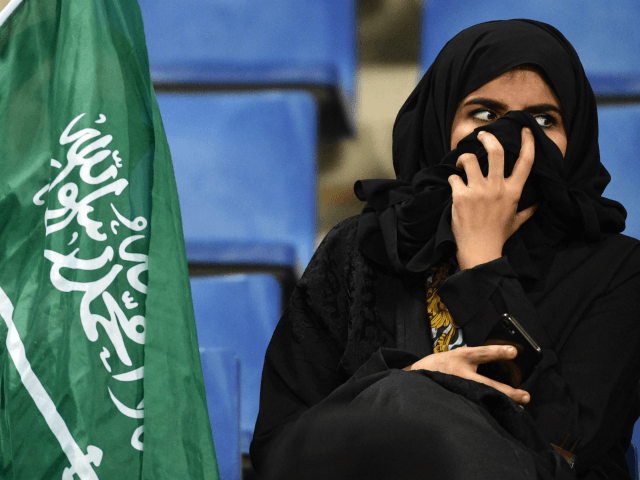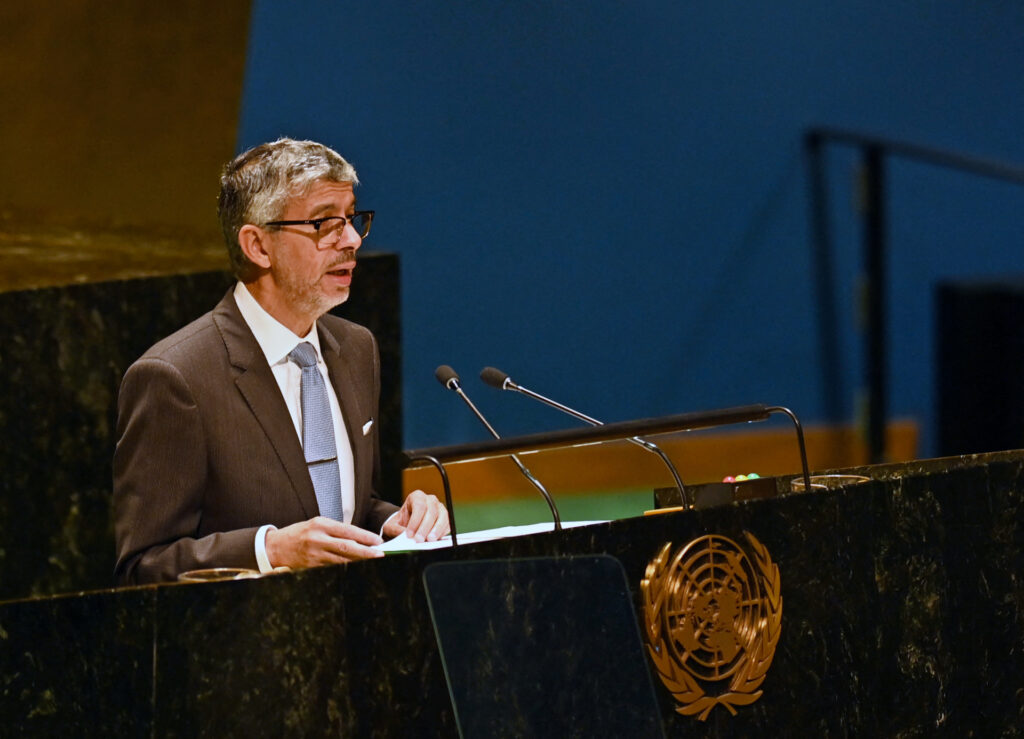U.N. Gives Saudi Arabia Leadership Role on Women's Rights Commission
 FAYEZ NURELDINE/AFP/Getty Images
FAYEZ NURELDINE/AFP/Getty Images
Saudi Arabia’s ambassador to the United Nations, Abdulaziz Alwasil, was elected as chair of the U.N. Commission on the Status of Women (CSW) on Wednesday – a decision that angered human rights groups due to what Amnesty International’s Sherine Tadros described as the “abysmal” record of Saudi Arabia.
Tadros told the UK Guardian on Wednesday that Alwasil is poised to be the CSW chairman on the thirtieth anniversary of the Beijing Declaration, a landmark action plan for improving women’s rights around the world. She found this unacceptable because Saudi Arabia’s record is “a far cry from the mandate of the commission.”
“Saudi Arabia’s election as chair of the UN Commission on the Status of Women shows shocking disregard for women’s rights everywhere,” said Human Rights Watch (HRW) U.N. Director Louis Charbonneau.

Abdulaziz Alwasil (ANDREA RENAULT/AFP via Getty Images)
“A country that jails women simply because they advocate for their rights has no business being the face of the U.N.’s top forum for women’s rights and gender equality,” Charbonneau said, suggesting the Saudis should immediately release all women jailed in this manner and abandon remaining discriminatory laws to demonstrate their fitness to chair the CSW.
Charbonneau added that he was puzzled and angry that no other governments objected to Alwasil’s chairmanship. Saudi Arabia lobbied for the chair in a blatant effort to improve its image. Alwasil was elected by “acclamation” on Wednesday, meaning no one ran against him or objected to his chairmanship.
“If they all raised a big enough stink, then it wouldn’t happen, but everyone is just quiet. Someone could call a vote, and no one seems to want to do that either, which strikes me as ridiculous,” he said.
Deutsche Welle (DW) noted on Thursday that the rotating chairmanship of the CSW is usually a stately process in which regional groups take turns holding the seat, and confirmation of the new chair is generally unanimous.
This is why Saudi Arabia had little trouble taking its turn to preside over the CSW even though it ranks 131 out of 146 countries on gender equality, according to the World Economic Forum (WEF). Afghanistan is in last place, 15 spots further down the list, which is no surprise.
Amnesty International’s campaigner for Saudi Arabia, Bissan Fakih, told DW the Alwasil chairmanship is “farcical.” Like Charbonneau, she was dismayed that none of the other member states “stood up to challenge Saudi Arabia’s appointment”:
Right now we're working on the case of a young woman, 29 years old, a fitness instructor and a women human rights defender who's forcibly disappeared so her family doesn't know where she is. She was locked up because she tweeted under the hashtag end male guardianship and because she posted a photo of herself in the mall without wearing a traditional abaya.
“We're seeing the UN, we're seeing football players, seeing businesses, we're seeing world leaders show up to Saudi Arabia and just sweeping human rights under the rug. And unfortunately they're falling for Saudi Arabia's PR campaign,” she said.
The Saudi government argues it has made progress on women’s rights in recent years, using the example of 2022’s “personal status” law, which Saudi leader Crown Prince Mohammed bin Salman touted as “progressive.”

Saudi Crown Prince Mohammed bin Salman (Saudi Press Agency via AP)
Human rights groups countered that the personal status law is only “progressive” in comparison to an outright misogynist nightmare like Afghanistan under the Taliban. Among other troubling details, the law discriminates against women in marriage, divorce, and child custody, it protects men charged with domestic abuse, and it requires women to obtain the permission of their male “guardian” to get married.
Critics of the CSW appointment note that women were not allowed to drive automobiles in Saudi Arabia until 2018, they were not allowed to obtain passports without permission from a male guardian until 2019, and they were not permitted to live alone until 2021.
Source link

